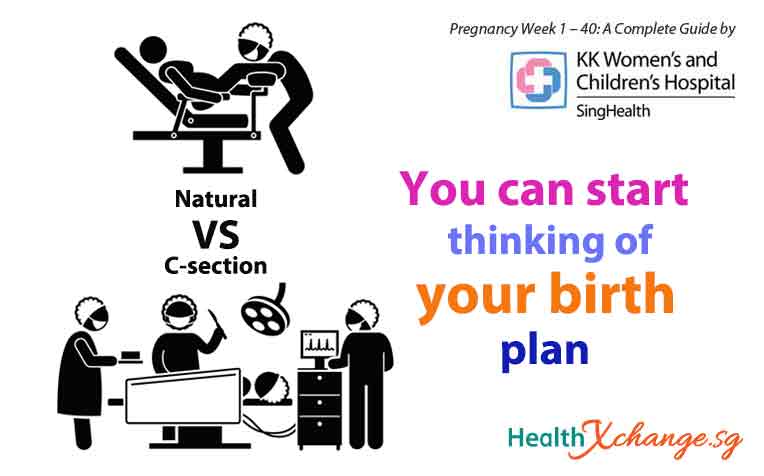
Pregnancy week 37 is where you can consider different delivery methods although natural vaginal births are usually encouraged.
For mom
Have you thought about your birth plan?
If you haven’t decided on your birth plan, you can start thinking about it now, at week 37.
Vaginal births are usually encouraged. Caesarean sections (C-sections) are only done for medical reasons as assessed by your obstetrician. An elective caesarean section is one that is planned. Sometimes, when natural deliveries are complicated, an emergency caesarean may be necessary.
Here is a short table comparing both delivery methods in the event you may need either one.
| | Elective C-section | Natural vaginal birth |
|---|---|---|
| Advantages |
|
|
| Disadvantages |
|
|
Recovery / Home Plan |
|
|
For baby
Here, we talk about the "warning signs" that you will need to train yourself to recognise in your newborn, in the event he/she exhibits any of them.
Symptoms to look out for in baby and seek medical help
Seek medical attention if your baby displays any of the following:
- Cries more than usual
- Screams as if in pain
- Is unusually quiet or drowsy
- Has diarrhoea or vomiting
- Has a sunken or bulging soft spot on the top of its head
- Breathes much faster than usual
- Has difficulty breathing
- Has a fever
- Has pale, cold and clammy skin
If you’re worried that your baby is behaving strangely, always ask your doctor. A mother's intuition can be spot on.
Ref: L20
Click the link for the complete listing of articles for Pregnancy Week 1 - Week 40.
Contributed by

















